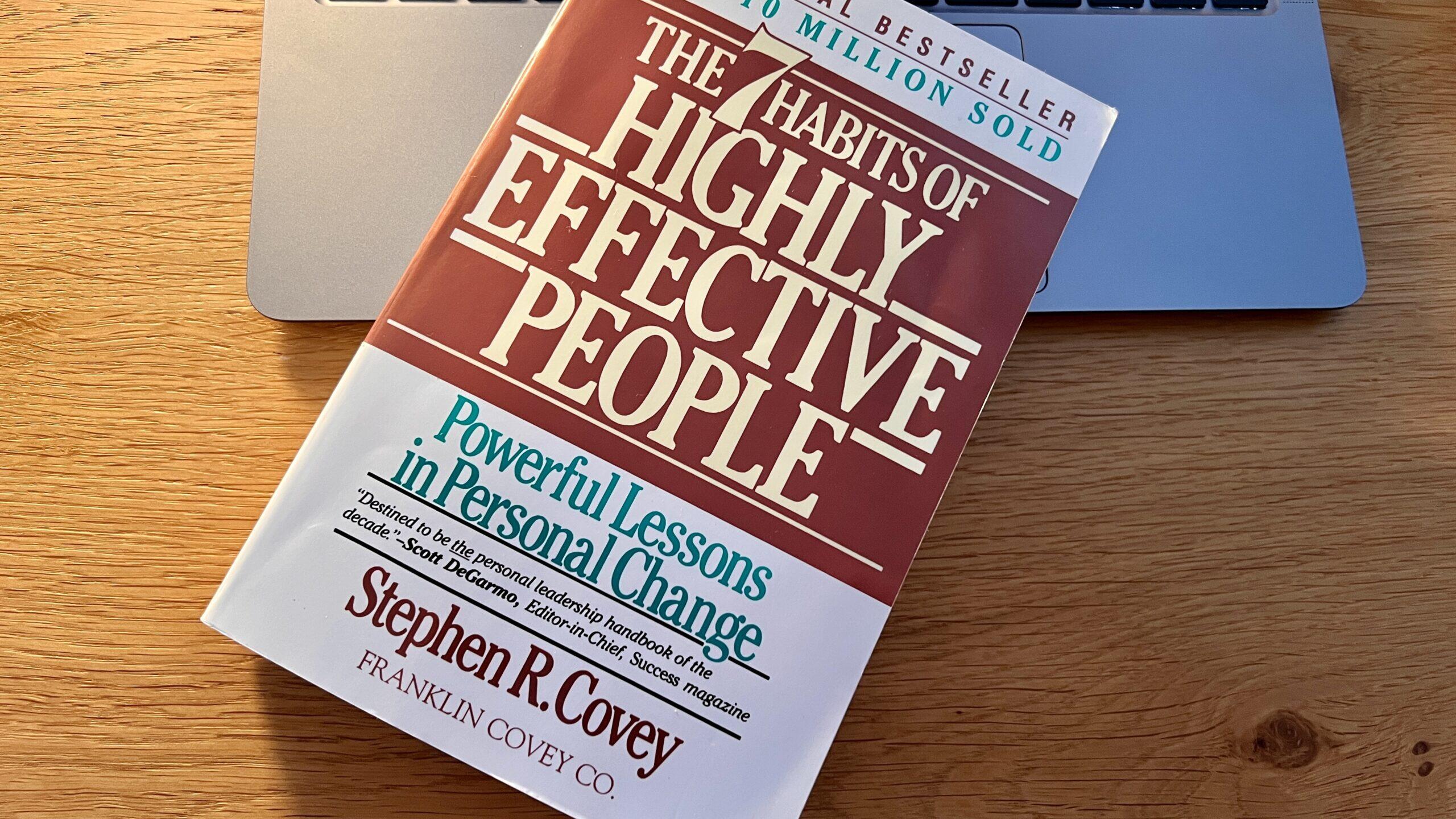I am often asked about my favorite book. Without hesitation, I always present a book that, for me, sets the standard for personal and professional development: “The 7 Habits of Highly Effective People” by Stephen R. Covey.
Covey, a renowned expert in leadership and personal growth, describes in his work seven habits that highly effective people practice, paving the way for a fulfilling, successful, and balanced life.
Why am I so enthusiastic about this concept? Let’s take a closer look at the 7 Habits together.
“The 7 Habits of Highly Effective People” by Stephen R. Covey – Overview
-
Habit 1: Be proactive
Proactivity is the ability to take responsibility for one’s own actions and consciously make decisions, rather than being controlled by external circumstances. Developing a proactive attitude requires awareness – an understanding of oneself and one’s surroundings – and self-leadership. Proactive individuals focus on their own sphere of influence (Circle of Influence) and manage it in a solution-oriented and proactive manner. In contrast, they avoid topics they cannot shape or influence. Focusing on the “Circle of Concern,” as Covey describes it as the counterpart to the Circle of Influence, diverts attention from the essential and consumes time and energy.
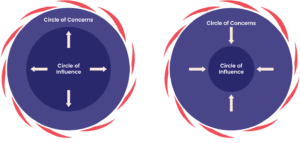
-
Habit 2: Begin with the end in mind
This habit emphasizes the importance of goal-setting and creating a clear vision. A practical example would be setting specific goals, even for areas outside of business. Take the time to visualize your long-term goals and then develop step-by-step plans to achieve them. Understanding that a defined goal allows efficient use of resources and directs all efforts in the right direction was crucial for me.
-
Habit 3: Put first things first
Setting priorities means focusing on the essential. A wise selection of tasks and concentration on key tasks make a significant difference in productivity. However, Habit No. 2 is a prerequisite. You must first determine where exactly you want to go, i.e., what your goals are.
-
Habit 4: Think win/win
The habit of “Win/Win thinking” recommends seeking solutions that are beneficial to all parties involved. An example would be not only focusing on personal gain in negotiations but also considering the needs and goals of the other party. Win/Win thinking is crucial for long-term success, especially in building trusting partnerships and relationships that are advantageous for both sides.
-
Habit 5: Seek first to understand, then to be understood
Active listening and empathetic understanding of others are key points of this habit. An example in practice is focusing on truly listening in conversations, rather than just waiting to be heard or already thinking about solutions.
This habit of “Active Listening” helps make better decisions and promotes a positive corporate culture.
-
Habit 6: Synergize
Synergy means that the whole is greater than the sum of its parts. An example of synergy is teamwork, utilizing the strengths of each individual to achieve common goals. Recognize the diversity of views and skills in your environment and use them for creative solutions.
Synergies are the key to innovation and growth.
-
Habit 7: Sharpen the saw
This habit emphasizes the importance of continuous improvement and self-care. Allocate time for personal development and self-care, whether through further education, regular breaks, or exercise. Consciously invest time and energy in your own health and personal development. Especially as a leader, it is your responsibility to lead by example and actively demonstrate this habit to your environment.
Digital solutions, like the Leaders21 platform, support continuous development, providing you and your team with new impulses for personal development week after week.
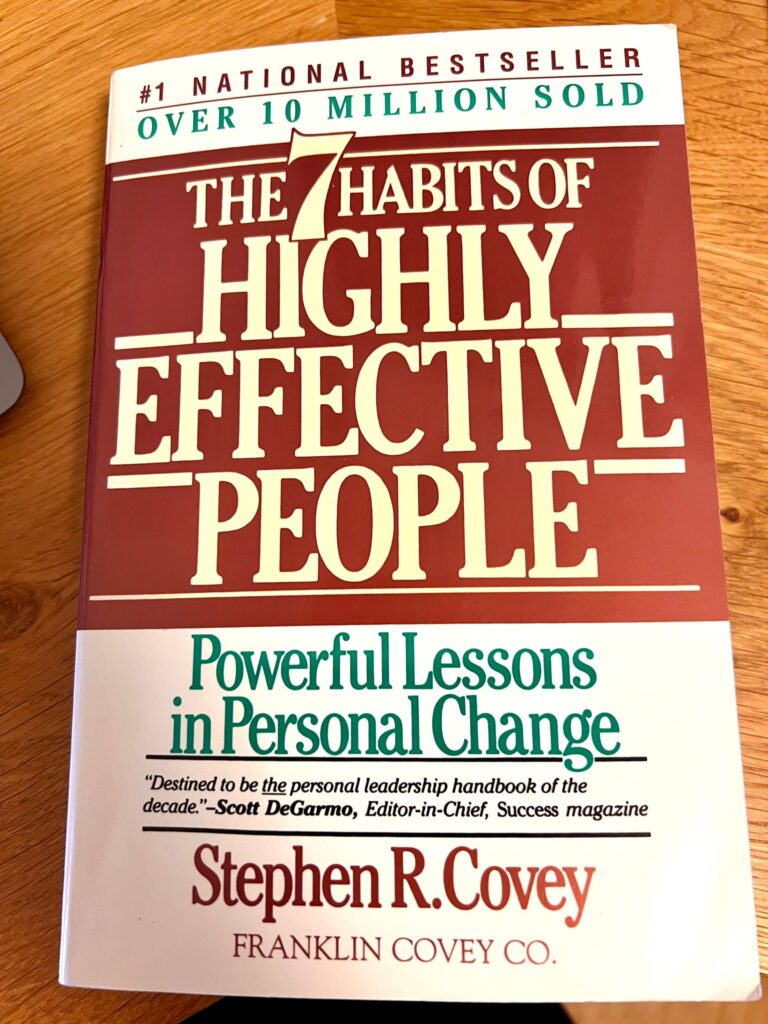
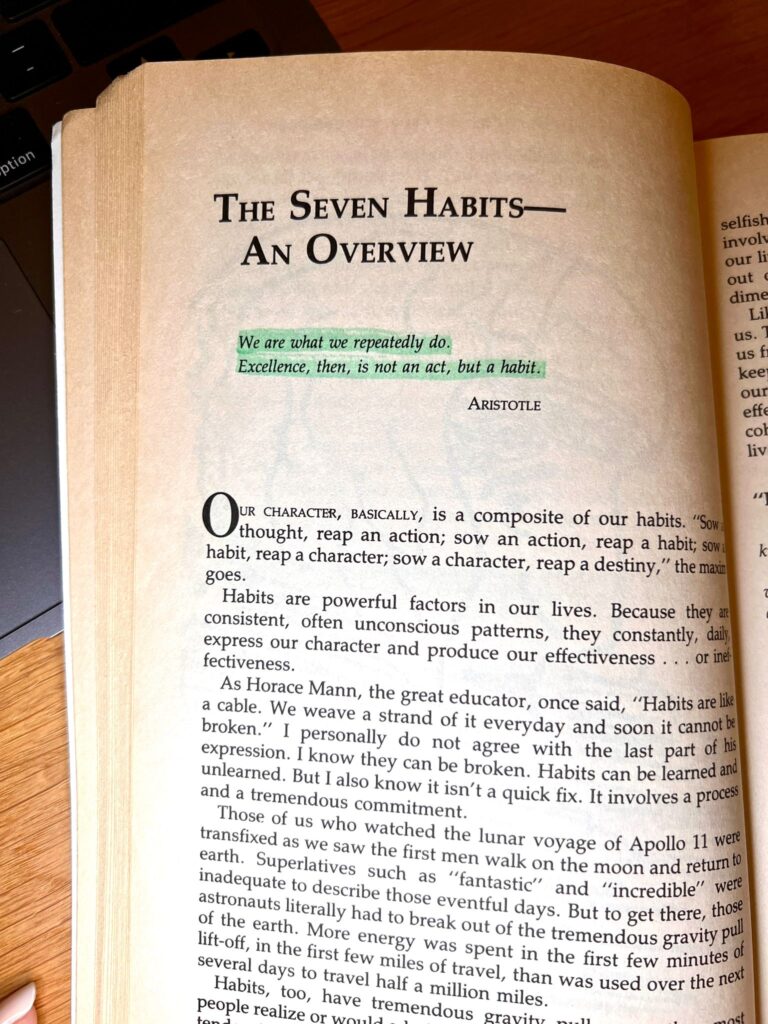
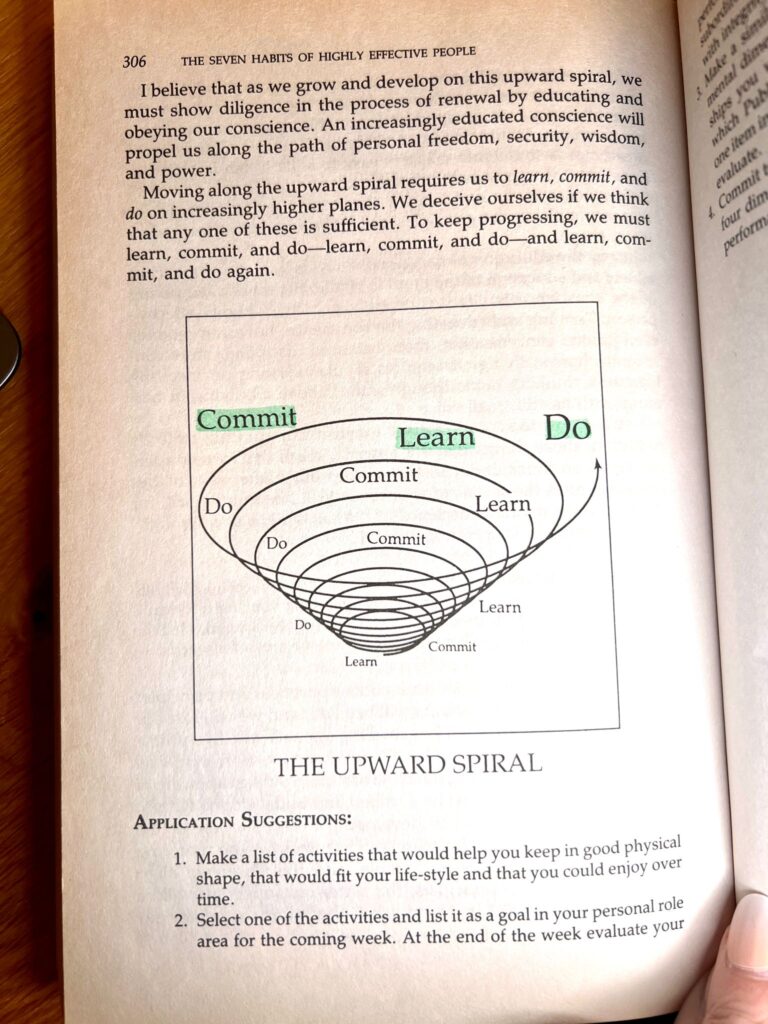
My conclusion
“The 7 Habits of Highly Effective People” by Stephen R. Covey not only offers a roadmap for personal transformation but also provides practical tips for implementation in daily life. By focusing on these 7 habits and consciously working on personal development, one paves the way for more effectiveness, fulfillment, and personal growth.
People do not decide their futures, they decide their habits and their habits decide their future. (F. M. Alexander)
Here are some tips on how to develop and integrate these habits into your life:
Practical tips for implementation:
- Self-Reflection: Start with an honest assessment of your own habits and identify areas where you want to grow.
- Small Steps: Focus on one habit at a time. Start slowly and take time to internalize the changes because established habits are not formed in a week.
- Daily Practice: Integrate the habits into your daily life. Create to-do lists, set clear goals, and regularly reflect on your progress.
- Seek Support: Connect with others who also apply these principles. Exchanging experiences and advice helps you stay on course.
- Leaders21 Platform: Turning habits into routine takes time. In your Leaders21 Learning Journey, you have the opportunity to track your active habits and actively decide after 8 weeks whether you have established the habit or still need further support.
Have you already adopted one of the 7 habits for yourself?
Thomas Kleindessner
Email: thomas.kleindessner@leaders21.com
Link to profilepage

